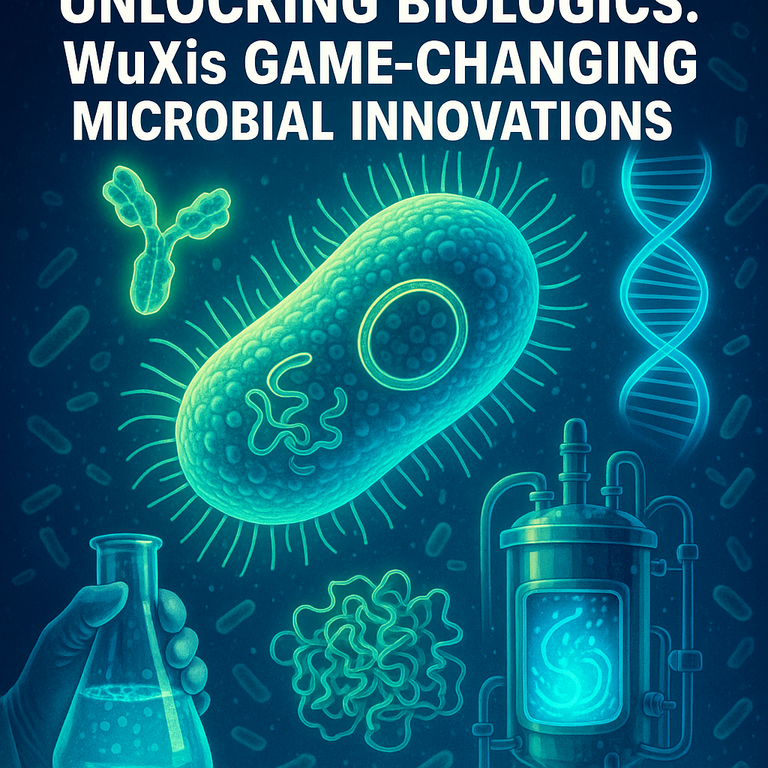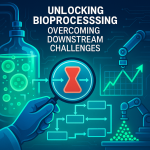💡 Their EffiX™ platform tackles production challenges, improving yield and purity.
🔬 Techniques include optimized plasmid design, stringent transcription control, and phage resistance.
🧪 This empowers high cell-density fermentation, achieving significant productivity boosts for difficult-to-express proteins.
🧬 Their focus leads to effective solutions in biopharma manufacturing.
Introduction:
Recent advancements in microbial production systems, particularly those employing Escherichia coli and yeast, have revolutionized the manufacturing of biologics, including nanobodies, enzymes, and complex modalities. WuXi Biologics is at the forefront of developing these systems, addressing challenges related to process development and good manufacturing practices (GMP).
- The EffiXTM expression system significantly enhances the stability and yield of biologics while addressing common issues like genetic instability, toxic by-products, and suboptimal post-translational modifications.
- Improved molecular designs, including advanced plasmids and strains, facilitate the efficient production of difficult-to-express (DtE) proteins, ensuring stable and scalable manufacturing.
- To enhance production efficiency, the EffiX system implements stringent transcriptional control to minimize leaky expression and maximize titer improvements, achieving up to a five-fold increase.
- Development of a toolbox for DtE proteins allows for precise tuning of genetic factors, increasing the success rate of their expression in microbial systems.
- Optimization of high-cell-density fermentation processes, supported by Process Analytical Technology (PAT) and Design of Experiments (DoE), has led to substantial improvements in the productivity and quality of various biologics, particularly VHHs (Variable domain of Heavy-chain-only antibodies).
Conclusion:
WuXi Biologics’ innovative microbial systems exemplify a significant advancement in the manufacturing of biologics, overcoming traditional barriers by leveraging novel expression technologies, robust genetic designs, and advanced fermentation processes. These developments promise improved yield and resource efficiency in the production of complex therapeutics, reinforcing the potential for biopharmaceutical innovations in the future.



